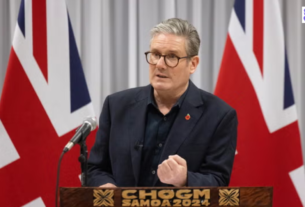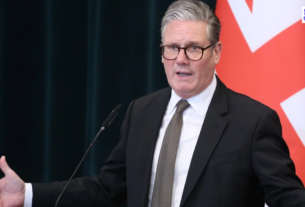LONDON , The UK government, under Prime Minister Keir Starmer, has announced a bold new immigration policy package aimed at dramatically reducing net migration, igniting fierce political debate across the country.
The proposals, outlined in a statement from Home Secretary Yvette Cooper, signal a major tightening of the UK’s migration system and represent a sharp shift from previous Labour positions.
Key reforms include:
- Doubling the residency requirement for most migrants to gain permanent settlement, increasing the minimum from five to ten years.
- Eliminating visa eligibility for social care workers, a move critics warn could worsen staffing shortages in the National Health Service and care sector.
- Raising English language proficiency standards, tightening the route for family reunification and work-related immigration.
- Expanding the government’s power to revoke visas and penalize sponsoring employers who violate immigration rules.
“We are restoring public trust in our immigration system,” Starmer said during a press briefing at Downing Street. “We support skilled migration, but we must also ensure the system is fair, firm, and focused on the needs of our country.”
The plan, which Starmer called a return to “managed migration,” is expected to face resistance within Labour’s own ranks, with some MPs expressing concern over its impact on the economy and humanitarian obligations.
Civil society groups and migrant rights advocates have condemned the measures, branding them “punitive and regressive.” The Refugee Council issued a statement warning the policies may discourage integration and disproportionately harm vulnerable communities.
Political analysts see the move as a calculated effort to court swing voters and appease growing anti-immigration sentiment reflected in recent local election results.
Reform UK, which has gained momentum in several by-elections, praised the announcement but said it does not go far enough, calling for an immediate freeze on all non-essential migration.
The new policies are expected to be debated in Parliament over the coming weeks, with potential legal challenges anticipated once implementation begins.




